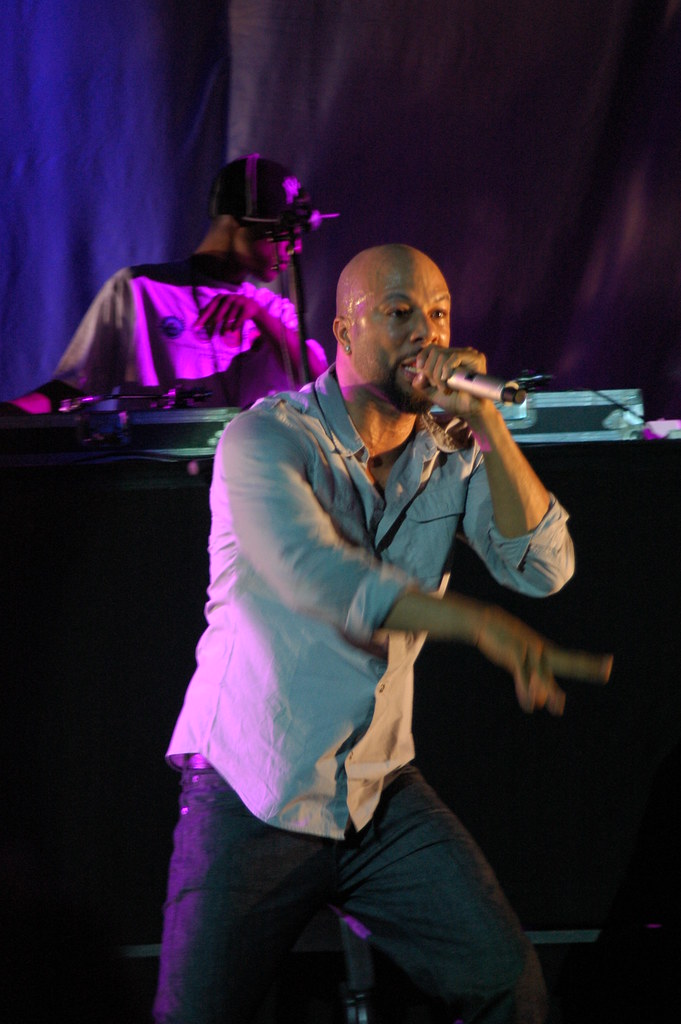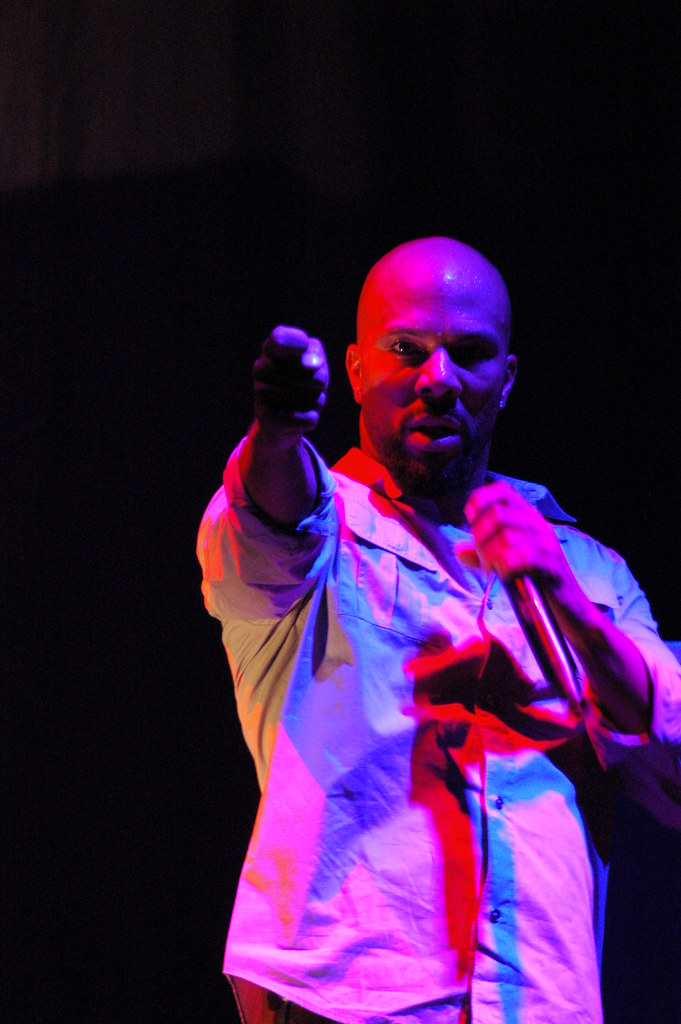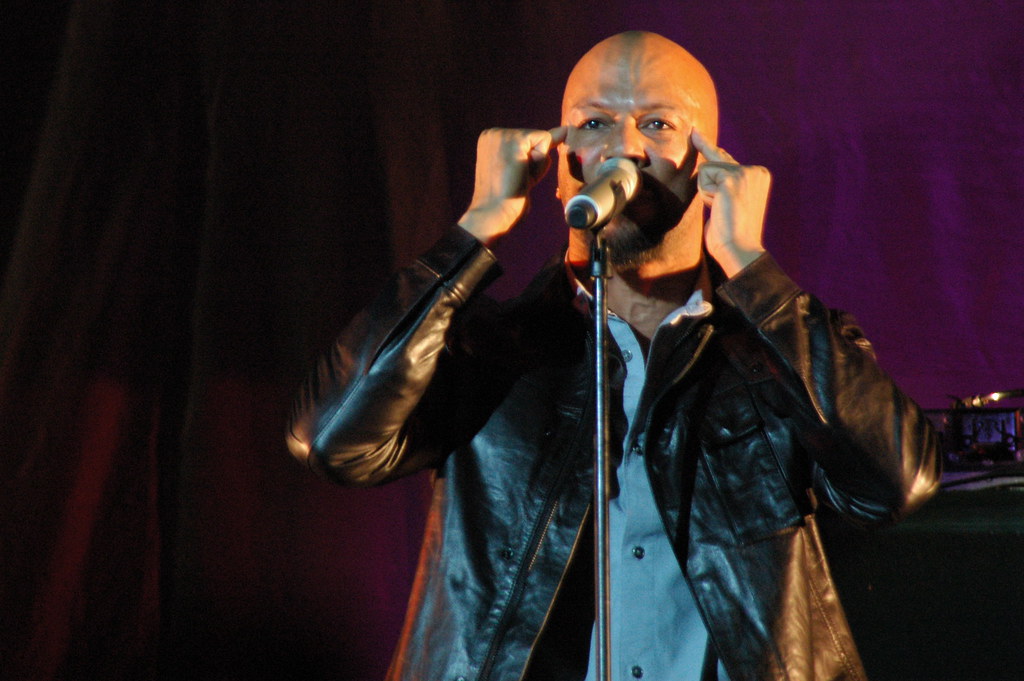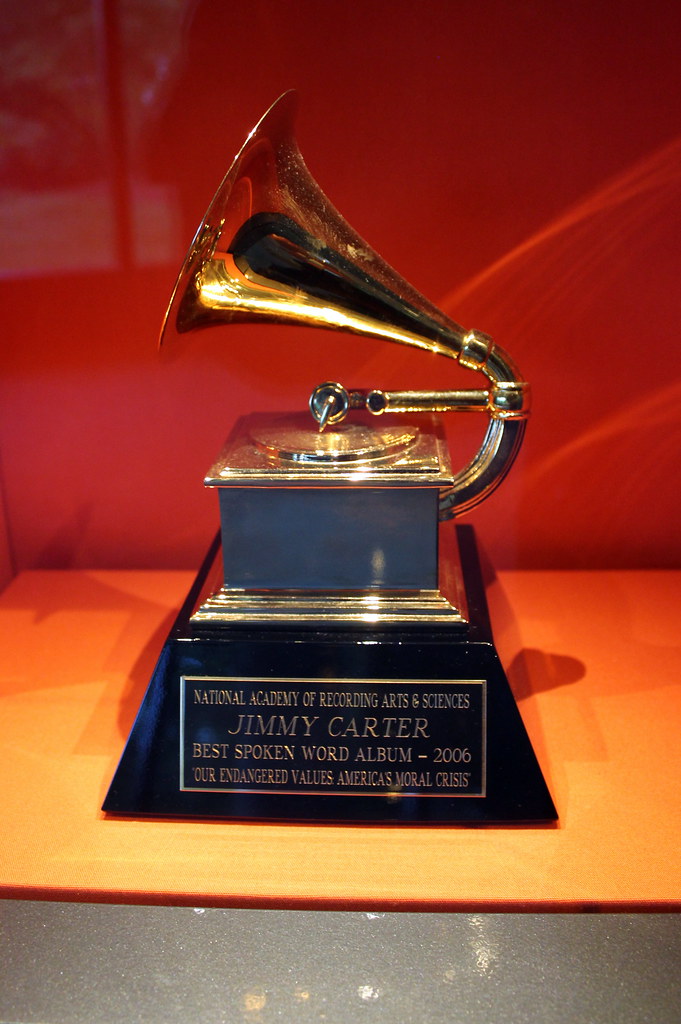
In an era where artists are increasingly expected to be multi-hyphenates, Lonnie Rashid Lynn, famously known as Common, stands as a prime example of sustained success across diverse fields. From his roots as an underground hip-hop artist to his celebrated status as an Academy, Grammy, Primetime Emmy, and Golden Globe Award winner, Common’s trajectory offers a masterclass in dedication, adaptability, and conscious evolution. His journey isn’t just a tale of artistic achievement; it’s a blueprint for anyone looking to build a resilient and impactful career, proving that true growth often involves underestimated efforts and a relentless pursuit of purpose.
What truly sets Common apart is his ability to seamlessly transition and excel in various domains—music, acting, writing, and activism—all while maintaining an authentic voice. This article breaks down the pivotal moments and strategic moves that shaped his extraordinary career, presenting them as actionable insights for cultivating your own path to significance. We’ll delve into the decisions, collaborations, and personal developments that allowed him to not only survive but thrive in the ever-changing landscape of entertainment and public life, offering practical takeaways that go beyond the glitz and glamour.
Join us as we uncover the layers of Common’s remarkable journey, starting with the very foundations that set the stage for his initial artistic expressions. Each step in his evolution reveals a commitment to craft and an openness to growth, proving that a truly impactful career is built on a blend of talent, perseverance, and a deep understanding of one’s own values. Here’s how this hip-hop luminary laid the groundwork for his enduring legacy.

1. **Early Foundations & Influences: Roots of a Visionary**
Every impactful journey begins with a foundation, and for Lonnie Rashid Lynn, this was laid in Chicago’s Hyde Park neighborhood, where he was born on March 13, 1972. His early life was shaped by influential parents: his mother, Mahalia Ann Hines, an educator and former principal of John Hope College Preparatory High School, and his father, Lonnie Lynn, a former ABA basketball player turned youth counselor. These diverse parental backgrounds undoubtedly instilled in him a blend of intellectual curiosity and a deep connection to community and performance. It’s a testament to the power of early exposure to both academic rigor and artistic expression, setting a broad stage for his future endeavors.
Despite the strong presence of his parents, Common’s childhood wasn’t without its challenges. His father left the family due to drug and alcohol addictions when Lynn was young, a situation that tested the family’s resilience. An attempt by his father to move the family to Seattle for a SuperSonics tryout ended in his arrest for false imprisonment in Wisconsin when Lynn was just two. These early experiences, though difficult, likely contributed to a profound understanding of struggle and perseverance, themes that would later resonate deeply in his music and activism.
After his parents divorced when he was six, Lynn was primarily raised by his mother, who cultivated his growth. Yet, his father remained an active figure in his life, even helping him secure a job with the Chicago Bulls as a teenager. This exposure to professional sports, coupled with his academic pursuits at Luther High School South and later Florida A&M University (FAMU), where he majored in business administration on scholarship, showcases a young man building a diverse skill set. These formative years, balancing family dynamics, education, and early work experiences, underscore the importance of varied influences in shaping a comprehensive worldview and laying the groundwork for future success.

2. **Honing the Craft: The Genesis of Common Sense**
Before he became the multi-hyphenate star we know today, Common’s artistic journey began in the late 1980s, during his high school years at Luther High School South in Chicago. It was there that he first began rapping, forming a trio called C.D.R. with two friends. This early foray into hip-hop wasn’t merely a hobby; it was a serious endeavor that saw them opening for established acts like N.W.A and Big Daddy Kane. This initial experience highlights the importance of starting early, finding collaborators, and gaining performance experience, no matter how small the stage.
By 1991, C.D.R. had dissolved, but Lynn’s passion for rhyming was undimmed. He embarked on a solo career, adopting the stage name Common Sense. His talent quickly caught the attention of the industry, earning him a feature in The Source magazine’s influential Unsigned Hype column. This recognition paved the way for his solo debut in 1992 with the single “Take It EZ,” followed by his first studio album, *Can I Borrow a Dollar?*. Signing with the independent label Relativity Records at the young age of 20, Common laid the groundwork for his career, demonstrating the drive to translate early passion into tangible releases.
The early phase of his career was instrumental in cultivating his unique sound and building a loyal fan base. He maintained an underground following throughout the early to mid-1990s, distinguishing himself with thoughtful lyrics and a distinct Midwestern hip-hop style. This period was also marked by his critical partnership with producer No I.D., who served as his long-time production partner for his first three albums. This consistent collaboration allowed Common to refine his artistry, develop a cohesive sound, and establish the musical identity that would later achieve mainstream recognition, proving the value of a strong creative partnership.

3. **Critical Breakthrough: Redefining Hip-Hop with *Resurrection***
The release of his second album, *Resurrection*, in 1994, marked a significant turning point in Common’s career, extending his critical acclaim far beyond the Chicago music scene. This album was a testament to his evolving artistry, resonating strongly with alternative and underground hip hop fans who appreciated its depth and lyrical prowess. It demonstrated that a strong, authentic artistic statement could carve out a unique space, even in a bustling music landscape. The positive reception and relatively strong sales cemented his position as a formidable voice in hip-hop.
A standout track from *Resurrection* was “I Used to Love H.E.R.,” a metaphorical exploration of hip-hop’s changing direction, personified as a woman. This deeply reflective song, however, inadvertently ignited a notable feud with West Coast rap group Westside Connection, who interpreted its lyrics as a critique of gangsta rap’s growing popularity. The lyrical exchange escalated with tracks like “Westside Slaughterhouse” and Common’s powerful response, “The Bitch in Yoo.” This period, while confrontational, showcased Common’s willingness to stand firm in his artistic convictions and engage in the lyrical battles characteristic of hip-hop at the time.
The resolution of the feud, brokered through a meeting with Louis Farrakhan, became a significant event, highlighting the potential for reconciliation even amidst heated artistic disagreements. This moment underscores the importance of dialogue and mutual respect in resolving conflicts, even in competitive industries. Furthermore, the album’s popularity brought an unexpected challenge: a lawsuit from an Orange County-based reggae band with the same name, forcing him to shorten his moniker to simply Common. This forced rebranding, while initially a hurdle, ultimately streamlined his identity and became the name under which he would achieve global recognition, illustrating the adaptability required in a public career.

4. **Navigating Growth: Fatherhood and *One Day It’ll All Make Sense***
Common’s third album, *One Day It’ll All Make Sense*, released in September 1997 after a two-year production period, was a deeply personal and transformative project. This album arrived at a pivotal moment in his life, coinciding with the birth of his first child, daughter Omoye Assata Lynn. The album, which deliberately steered clear of gangsterism to reinforce his musical integrity, featured an impressive roster of collaborations including Lauryn Hill, De La Soul, Q-Tip, Canibus, Black Thought, Chantay Savage, and Questlove. These collaborations highlight an artist actively seeking diverse voices and expanding his creative network, a key strategy for artistic longevity.
As documented by hip-hop journalist Raquel Cepeda, the experience of impending fatherhood had a profound spiritual and mental effect on Common, pushing him to grow musically and embrace greater responsibility as an artist. This personal evolution heavily influenced tracks like “Retrospect for Life,” produced by James Poyser and No I.D., featuring Lauryn Hill. This song, which offers a male perspective on abortion, became a driving force behind the project, with Common reflecting years later on “how precious her (Omoye’s) life is.” It’s a powerful reminder of how personal milestones can deeply enrich artistic output and lend authenticity to one’s message.
The album’s themes frequently address family ethics, and its sleeve, adorned with old family photos, visually reinforces this focus on his childhood and roots. A poignant quote from 1 Corinthians 13:11, “When I was a child, I talked like a child, I thought like a child, I reasoned like a child. When I became a man, I put childish ways behind me,” perfectly summarizes the album’s central theme: the path to manhood. *One Day It’ll All Make Sense* demonstrated Common’s willingness to share his vulnerabilities and growth, showing how deeply personal experiences can connect with a wider audience and enhance an artist’s depth and relatability.

5. **The Soulquarians Era: Creative Synergy and Sonic Evolution**
Following the critical success of *One Day It’ll All Make Sense*, Common signed a major label record deal with MCA Records and made a significant geographical and creative move, relocating from Chicago to New York City in 1999. This move immersed him in a vibrant new creative environment, leading him to record almost exclusively with a loose collective of musicians and artists known as the “Soulquarians,” a group dubbed by central figure Questlove. This strategic relocation and immersion into a new collective underscore the value of seeking out fresh perspectives and collaborative energies to fuel artistic growth, a crucial lesson for any creative looking to evolve.
In 2000, this period culminated in the release of his fourth album, *Like Water for Chocolate*, which was met with mass critical acclaim. Executive produced by Questlove and featuring significant contributions from the legendary J Dilla, the album became a considerable commercial breakthrough for Common, earning him his first gold record and greatly expanding his fanbase. This success wasn’t accidental; it was a direct result of fostering deep creative chemistry, particularly with Dilla, with whom Common collaborated on numerous projects, including placing “Thelonius” on both Slum Village’s *Fantastic, Vol. 2* and *Like Water for Chocolate*.
Their bond extended beyond the studio; as Dilla’s health declined due to Lupus Nephritis, he relocated to Los Angeles, and Common chose to move with him as a roommate, illustrating the profound personal and professional connections that can emerge from creative partnerships. *Like Water for Chocolate* also saw Common boldly explore themes and sounds uncommon for hip-hop, such as “Time Travelin’ (A Tribute To Fela),” a homage to Nigerian music legend Fela Kuti. The album’s most popular single, “The Light,” received a Grammy nomination, solidifying this era as a period of significant artistic and commercial triumph, marked by daring sonic experimentation and profound collaborations.
In 2002, Common released his fifth album, *Electric Circus*, an album that was highly anticipated and praised by many critics for its ambitious vision. This project saw Common pushing boundaries further, fusing hip hop with elements of pop, rock, electronic music, and neo-soul. While the album’s eclectic nature divided some critics—some applauding its vision, others feeling he strayed too far from his established sound—it demonstrated his unwavering commitment to artistic exploration. Despite selling under 300,000 copies, less than its predecessor, *Electric Circus* remains a testament to an artist willing to take risks and experiment with genre, even if it meant a mixed commercial response. This was his second and final album for MCA, and the label’s last release before being absorbed into Geffen Records. It’s a powerful lesson in valuing artistic integrity and challenging expectations, even when the immediate commercial outcome isn’t a blockbuster.
Read more about: Beyond the Rhymes: Unpacking the Multifaceted Career and Enduring Impact of Common

6. **Collaborating for Impact: The Rise of the GOOD Music Partnership**
A new chapter in Common’s career began in early 2004 when he made a significant appearance on fellow Chicagoan Kanye West’s multi-platinum debut album, *The College Dropout*, on the track “Get Em High.” This collaboration quickly led to a major announcement: Common signed with West’s then-newfound record label, GOOD Music. This strategic alliance was a game-changer, demonstrating the power of leveraging new connections and established relationships for career advancement. West, a longtime admirer of Common, brought a fresh energy and a formidable production capability to their partnership.
Their creative synergy was immediate and profound. Common’s next album, *Be*, released in May 2005, was almost entirely produced by Kanye West, with additional contributions from Common’s longtime collaborator J Dilla. Boosted by Kanye’s extensive involvement and compelling singles like “The Corner” and “Go,” *Be* performed exceptionally well, earning Common his second gold record with sales topping around 800,000 copies. The album garnered widespread critical acclaim, receiving near-perfect ratings from The Source and XXL magazines, solidifying its place as a pivotal release that married Common’s thoughtful lyricism with a fresh, impactful sound. This success highlights the effectiveness of a powerful collaborative partnership in reinvigorating an artist’s career.
Following *Be*, Common continued his work with Kanye West on his seventh LP, *Finding Forever*, released on July 31, 2007. This album also featured contributions from other notable producers such as Will.i.am and Devo Springsteen. *Finding Forever* debuted at No. 1 on the national Billboard 200 charts, a remarkable achievement that underscored the continued strength of his artistic direction and the resonance of his music with a broader audience. Though the album was nominated for Best Rap Album at the 2008 Grammys and lost to West’s *Graduation*, Common still secured his second Grammy Award for “Southside,” which won Best Rap Performance by Duo or Group. This era cemented his commercial viability while maintaining critical integrity, showcasing how strategic alliances can elevate an artist to new heights of influence and recognition.
Read more about: The Unforgettable Legacy of Tim Conway: A Deep Dive into the Brilliant Mind of a Comedy Icon

7. **Expanding Artistic Horizons: From Rapper to Award-Winning Actor**
While his music career continued to flourish, Common quietly began exploring another artistic avenue: acting. His initial forays into television in 2003 included guest appearances on UPN sitcoms *Girlfriends*, where he played a slam poet named Omar, and *One on One*, as a drama instructor named Darius. He also made a cameo on ABC’s *Scrubs*. These early roles, though minor, provided invaluable experience and a platform to test his dramatic capabilities, illustrating the importance of diversifying one’s skillset and seeking opportunities beyond the primary domain.
His big-screen debut arrived in 2007 with the crime film *Smokin’ Aces*, where he starred as the villainous Mob enforcer Sir Ivy, alongside Ryan Reynolds and Alicia Keys. This role marked a significant step into the world of cinema, quickly followed by appearances in other major films that same year, including *American Gangster* with Denzel Washington and Russell Crowe. The rapid succession of film roles, such as in *Wanted* (2008), *Street Kings* (2008), *Terminator Salvation* (2009), *Date Night* (2010), and *Just Wright* (2010), where he starred opposite Queen Latifah, demonstrated his growing versatility and commitment to acting as a serious craft.
Common’s acting career truly solidified with his lead role as Elam Ferguson in the AMC western series *Hell on Wheels*, which he starred in from 2011 to 2014. This character, a recently freed slave navigating a complex world, allowed him to showcase considerable dramatic range. Perhaps his most acclaimed role came in 2014, when he co-starred as civil rights leader James Bevel in the film *Selma*. This role was particularly significant as he also co-wrote the Oscar-winning song “Glory” for the film with John Legend, marking a powerful convergence of his musical and acting talents. This achievement, earning him an Academy Award, a Primetime Emmy, and a Golden Globe, stands as a monumental testament to his ability to transcend genres and achieve excellence in multiple creative fields, demonstrating that dedication and talent can lead to extraordinary cross-platform success.
Having established his formidable presence in music and made a powerful entry into acting, Common’s career trajectory continued its upward climb, demonstrating a consistent commitment to diversification and growth. His journey offers valuable lessons on how to not only explore new avenues but to excel in them, transforming initial forays into significant career pillars. This section delves into the expansive impact of Common’s work beyond his core musical endeavors, analyzing how he built a lasting legacy through acting, film production, writing, activism, and strategic branding—each step a testament to his entrepreneurial spirit and unwavering dedication to his craft and community.
Read more about: The Common Sense Guide to Building a Versatile Career: Lessons from a Hip-Hop Icon

Drop files to upload
8. **Expanding the Marquee: Continued Triumphs in Acting**
While his role as James Bevel in *Selma* earned him widespread critical acclaim and prestigious awards, it was merely one highlight in Common’s steadily growing filmography. His strategic diversification into acting began years before, with early guest appearances on shows like *Girlfriends* and *One on One* in 2003, providing essential training grounds. These initial steps illustrate the importance of embracing smaller opportunities to build experience and confidence, proving that every role, no matter how minor, contributes to the larger mosaic of a multifaceted career.
Following *Selma*, Common continued to accept varied roles, showcasing his range and solidifying his reputation as a serious actor. He took on the challenging role of a hitman in *Run All Night* (2015) and appeared as a gangster in David Ayer’s *Suicide Squad* (2016), demonstrating his ability to inhabit complex, darker characters. His reunion with Keanu Reeves as professional hitman/bodyguard Cassian in *John Wick: Chapter 2* (2017) further cemented his action film credentials, proving he could hold his own in physically demanding roles.
His commitment to the craft was also evident in more dramatic and nuanced performances. In *All About Nina* (2018), he co-starred with Mary Elizabeth Winstead in a role that earned him significant critical praise, with *Variety* recognizing it as “easily the strongest of the half-dozen supporting roles he’s had this year.” That same year, he delivered a powerful performance as Starr’s uncle Carlos, a black police officer, in *The Hate U Give*, tackling sensitive social issues through his character. These roles underscore how an artist can leverage their platform to tell important stories and explore diverse human experiences, continuously challenging themselves creatively.
Common also extended his acting prowess to television and voice work. Beyond *Hell on Wheels*, he took on a supporting role in the Apple TV+ science fiction series *Silo* starting in 2023, and lent his voice to animated characters like Seymour in *Happy Feet Two* (2011), Kiburi the crocodile in Disney Junior’s *The Lion Guard* (2017), and the Stonekeeper in *Smallfoot* (2018). His Broadway debut in *Between Riverside and Crazy* in 2022 marked another significant milestone, demonstrating his versatility across different performance mediums. His journey serves as a blueprint for artists looking to expand their reach, emphasizing the value of continuous learning and fearless exploration across genres and platforms.
Read more about: Global Icons: Exploring the Lives and Enduring Legacies of 14 World-Famous Personalities

9. **Producing Impact: From Actor to Film Mogul**
Common’s entrepreneurial vision wasn’t confined to his performances; it extended to shaping narratives from behind the camera. Recognizing the power of storytelling and the need to control his artistic output, he made a pivotal move into film production. This strategic expansion is a crucial step for artists seeking to exert greater influence over their work and create opportunities not just for themselves, but for other voices and stories. It’s a practical lesson in leveraging established success to build new creative ventures.
In October 2015, Common solidified this ambition by signing a two-year deal with HBO, a significant partnership that enabled him to launch his own film production company, Freedom Road Productions. This achievement realized a long-held career goal, which he had articulated in a 2012 interview about starting his own production house. Establishing Freedom Road Productions was more than just a business venture; it was a testament to his commitment to fostering narratives that resonate with his artistic and social values, providing a platform for authentic and impactful storytelling.
Beyond his own company, Common also embraced opportunities to contribute as an executive producer. In 2016, he collaborated with Amazon Studios and American Girl on the direct-to-video feature *An American Girl Story – Melody 1963: Love Has to Win*. This role exemplifies a commitment to nurturing diverse projects and ensuring that important historical and cultural narratives reach wider audiences. Such involvement highlights the multifaceted nature of artistic entrepreneurship, demonstrating how artists can leverage their influence to create meaningful content across various media formats, expanding their impact far beyond their initial craft.

10. **Words Beyond Rhymes: Literary Contributions and Public Discourse**
Common’s artistic expression extends compellingly into the written word and public intellectual discourse, proving that a powerful voice can resonate across multiple mediums. His journey into writing and poetry underscores the importance of utilizing all available platforms to share insights, reflect on personal growth, and contribute to cultural conversations. This expansion from lyrical poetry to prose demonstrates a holistic approach to communication, a valuable strategy for any individual aiming for broad influence.
In 2011, Common received an invitation from First Lady Michelle Obama to appear at a poetry reading at the White House, a prestigious recognition of his poetic talents. His work was notably influenced by literary giants like Maya Angelou, showcasing a deep engagement with the tradition of expressive writing. However, this invitation sparked controversy with some police organizations who cited previous lyrical content, particularly “A Song For Assata” about Assata Shakur, as well as references to Mumia Abu-Jamal. This incident highlights the challenges of public platforms and the need for artists to navigate complex societal debates.
Common responded to the criticism by affirming his broader support for police officers and troops while acknowledging the context of his artistic expression. He engaged with the issue publicly, including a discussion with Jon Stewart on *The Daily Show*, demonstrating a willingness to address controversy directly and thoughtfully. This episode serves as an important lesson in maintaining integrity and clarity of message when faced with public scrutiny, emphasizing the artist’s role not just as an entertainer but as a participant in societal dialogue.
His literary pursuits further materialized in the form of memoirs. In September 2011, Common published *One Day It’ll All Make Sense* through Atria Books, a poignant work that explores his life journey, significantly influenced by his close relationship with his mother, who also partially narrated the book. This deep dive into his personal history and family values provides readers with an intimate understanding of the man behind the music. He followed this with his second memoir, *Let Love Have The Last Word*, released in May 2019, which delved into his relationships with his daughter Omoye, romantic partners, and parents, articulating his evolving perspective on love. These autobiographical works showcase how personal reflection can be transformed into compelling narratives that resonate universally, offering wisdom and inspiration beyond entertainment.
Read more about: Lynda Obst: A Hollywood Luminary Who Championed Women’s Voices and Shaped Cinematic History, Dies at 74
11. **Championing Change: Common’s Activism and Social Impact**
Beyond the studio and the screen, Common has consistently leveraged his platform to champion social causes, embodying the principle that true influence comes with responsibility. His dedicated activism provides a compelling case study for how public figures can effectively drive change and empower communities. This commitment to social justice is not merely an adjunct to his career but an integral part of his identity, offering practical insights into purposeful engagement.
Common is a vocal advocate for animal rights, proudly identifying as a vegan and collaborating with organizations like PETA. His appearance in their “Think Before You Eat” print advertisement and his promotion of vegetarianism in the documentary *Holistic Wellness for the Hip-Hop Generation* exemplify his personal commitment to ethical living. Such actions demonstrate how personal convictions can translate into public advocacy, inspiring others to consider their own choices and their impact on the world around them.
His activism also extends to critical health and societal issues. He actively participates in the “Knowing Is Beautiful” movement, promoting HIV/AIDS awareness, and notably contributed to the “Yes We Can” song, which debuted online in support of Barack Obama’s presidential candidacy in 2008. Furthermore, Common has pledged to cease using anti-gay lyrics in his music, demonstrating a conscious evolution in his artistry to align with principles of inclusivity and respect. These deliberate choices reflect a commitment to using his voice for positive societal influence.
Perhaps his most enduring commitment to community empowerment is through the Common Ground Foundation, a non-profit he founded. This organization is dedicated to equipping underprivileged youth with the tools to become contributing citizens and strong leaders, offering programs focused on leadership, educational development, creative expression, and a book club. The foundation’s efforts also included inaugurating the AAHH! Fest music festival in Chicago, a community event designed to uplift and celebrate. These initiatives highlight the practical application of his philosophy: investing directly in future generations and fostering local community development.
In 2017, Common’s engagement deepened with a series of concerts in California prisons and on the grounds of the California State Capitol, experiences that profoundly influenced him. This led to the founding of Imagine Justice, another non-profit organization dedicated to criminal justice reform. In response to the COVID-19 pandemic in May 2020, Imagine Justice launched the #WeMatterToo social media campaign, collaborating with advocacy groups to raise awareness about the severe threat the pandemic posed to incarcerated individuals, producing short films featuring inmates’ concerns. His involvement in the award-winning documentary short film *#Bars4Justice*, shot in Ferguson, Missouri, further underscores his dedication to addressing systemic injustices. Common also performed at the March for Our Lives anti-gun violence rally in Washington, D.C., and at the 50th anniversary of Martin Luther King’s death in Memphis, consistently showing up for critical moments of social reckoning. His unwavering commitment to these causes demonstrates a powerful model for leveraging fame for profound social good.

12. **The Brand of Common: Influence Through Commercial Collaborations**
Beyond his artistic and activist endeavors, Common has shrewdly cultivated his personal brand through strategic commercial collaborations, demonstrating an astute understanding of how to leverage his image for broader influence and entrepreneurial success. These partnerships are not just about endorsement; they reflect a careful alignment with brands that complement his sophisticated, conscious persona. This aspect of his career provides valuable insights into how artists can monetize their brand while maintaining authenticity.
From appearing as a model for The Gap’s fall season collection in 2006 to performing in their “Holiday in Your Hood” themed Peace Love Gap campaign, Common strategically aligned himself with established brands. In February 2007, he signed a deal with New Era to promote their Layers fitted caps, and he featured in a television commercial for the 2008 Lincoln Navigator. These endorsements placed him in diverse commercial spaces, extending his visibility beyond music and film, and showcasing his appeal across various demographics. This expansion demonstrates the power of selective brand partnerships in amplifying an artist’s reach and commercial value.
His engagements extended into the tech and gaming sectors as well. Common appeared in NBA 2K8 in Blacktop mode, linking his celebrity to popular culture platforms. In the fall of 2008, he featured in an ad for Microsoft’s Zune, cleverly comparing his new song, “Universal Mind Control,” to Afrika Bambaataa’s classic “Planet Rock,” bridging generations of hip-hop fans. He also lent his image to the Diesel campaign for their “Only The Brave” fragrance, further diversifying his brand portfolio. His song “Be (intro)” was later featured in a BlackBerry commercial in 2011, illustrating the enduring appeal of his music in commercial contexts.
Demonstrating an entrepreneurial spirit that goes beyond mere endorsement, Common launched his own clothing line, “Softwear,” in partnership with Microsoft in December 2008, themed around 1980s computing. This venture exemplifies a hands-on approach to branding, turning an endorsement opportunity into a co-creative business. His estimated earnings of 12 million dollars in 2008, placing him among the highest-grossing hip-hop artists, underscore the financial success achievable through strategic brand building and diversification. Common’s approach to branding teaches that conscious collaboration and entrepreneurial initiatives are key to building a robust and lasting career, transforming artistic capital into enduring economic and cultural influence.

13. **Independent Spirit: Post-GOOD Music and Recent Musical Journeys**
Even as Common diversified into acting, production, writing, and activism, his commitment to music remained foundational, albeit with an evolving strategy. After his successful run with GOOD Music, he embarked on a more independent path, which underscores the importance of artistic autonomy and adapting to a changing industry landscape. This phase of his career provides valuable lessons on maintaining creative control and continuing to innovate, even after achieving mainstream success.
His eighth album, *Universal Mind Control* (2008), marked a critical decline in reception and served as his final release with GOOD Music. This experience, however, prompted a shift towards greater independence. In 2011, Common founded his own label imprint, Think Common Entertainment, entering a joint venture with Warner Bros. Records for his ninth album, *The Dreamer/The Believer* (2011). This move highlights a deliberate strategy to reclaim creative and business control, a crucial step for artists looking to build sustainable long-term careers away from major label structures.
*The Dreamer/The Believer* spawned singles like “Ghetto Dreams” and “Blue Sky.” The album also contained “Sweet,” a track with lyrics critical of rappers who sing, which inadvertently ignited a notable lyrical feud with Canadian artist Drake. Drake responded with “Stay Schemin’,” prompting Common’s quick response. While confrontational, this exchange was ultimately resolved, with Common stating, “It’s over. But it was all in the art of hip hop.” This period demonstrated his readiness to engage in lyrical battles, a traditional aspect of hip-hop, while also showcasing his ability to move past conflict, focusing on the art itself.
He later joined No I.D.’s ARTium Recordings, an imprint of Def Jam Recordings, for his tenth album, *Nobody’s Smiling* (2014). This album, originally conceived as an EP, was entirely produced by No I.D. and inspired by the violence in his hometown of Chicago. Common described it as “a call to action,” reflecting his continued commitment to social commentary through his music. Subsequent albums like *Black America Again* (2016), his final major label release, *Let Love* (2019), and the two-part *A Beautiful Revolution* series (2020, 2021) further showcased his evolving sound and unwavering focus on social issues, featuring collaborations with artists like Stevie Wonder, Black Thought, and Bilal. These albums demonstrate how an artist can sustain relevance and critical acclaim by continuously evolving their sound and message.
Common also expanded his musical horizons by forming the jazz group August Greene with Karriem Riggins and Robert Glasper in 2018, releasing a critically acclaimed album through Amazon Music. In 2024, he announced a collaborative album with Pete Rock, *The Auditorium Vol. 1*, which garnered a Grammy nomination for Rap Album of the Year and millions of streams. These ventures into jazz and continued collaborations with hip-hop legends illustrate his boundless creative energy and willingness to explore new musical territories, ensuring his legacy as a dynamic and continuously evolving artist.

14. **A Blueprint for Lasting Impact: Common’s Enduring Legacy**
Lonnie Rashid Lynn, known globally as Common, is far more than an artist; he is a testament to the power of sustained evolution, strategic diversification, and unwavering purpose. His career, meticulously built across music, acting, writing, activism, and branding, offers an inspiring blueprint for anyone seeking to cultivate a resilient and impactful life. He teaches us that true success isn’t about excelling in one domain, but about finding synergy across multiple passions, each reinforcing the other to create a monumental whole.
From his early days of honing his lyrical craft in Chicago to navigating the complexities of Hollywood and Washington, Common consistently demonstrates an entrepreneurial spirit—founding Think Common Entertainment, launching Freedom Road Productions, and even developing a clothing line with Microsoft. These initiatives show how an artist can not only create art but also build the infrastructure to support and amplify their vision, transforming talent into tangible enterprise. It’s a powerful lesson in taking control of your destiny and building a platform that extends far beyond individual projects.
His steadfast commitment to social causes, from advocating for animal rights and HIV/AIDS awareness to establishing the Common Ground Foundation and Imagine Justice, proves that art and activism can, and should, coexist. Common embodies the principle that a prominent voice carries a responsibility to speak for those unheard, to challenge injustices, and to actively invest in community upliftment. His journey reminds us that the most profound impact often comes from integrating one’s values deeply into every facet of their professional and personal life, creating a legacy defined by both creative brilliance and compassionate action.
Common’s ability to constantly reinvent himself while remaining authentic to his core values serves as a powerful guide. Whether it’s embracing new musical genres, tackling diverse acting roles, or candidly sharing personal reflections in his memoirs, he consistently demonstrates an openness to growth and self-discovery. His multifaceted career is a masterclass in adaptability, purposeful expansion, and the enduring influence that stems from a relentless pursuit of purpose. It’s a compelling narrative that inspires us all to look beyond conventional boundaries and cultivate our own unique paths to significance and lasting impact.



